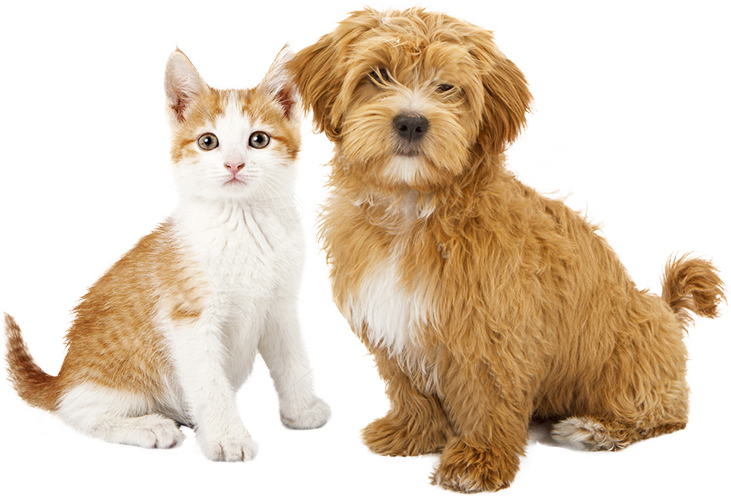It can be disconcerting when your dog vomits, especially when they are vomiting up yellow. There are a plethora of reasons that this may occur.
If your dog is vomiting up yellow, it could be due to everything from an empty stomach to something more serious, such as liver or kidney problems. Your pup could also be experiencing a food allergy. It would be safest if you kept an eye on your dog to figure out the cause of their suffering.
There may be certain things you can try to keep your dog from getting sick in the first place. If you want to know why your dog is vomiting yellow, peruse this article.
Why is My Dog Vomiting Yellow?
If your dog is vomiting yellow, it is an indication that bile is present. Bile is a digestive juice that is excreted by the gallbladder and liver. It helps digest the fats and oils in the small intestine. There could be many reasons why bile can be expelled from the stomach and is yellow.
Empty Stomach
The most common explanation why a dog would vomit up yellow bile is that they have an empty stomach. If your dog has not eaten, and stomach acids accumulate and aggravate your dog’s stomach lining, inflammation and abdominal pain will be triggered. If your dog is retching due to an empty stomach, they may vomit again after eating.
Dietary Indiscretion
Sometimes dogs can get themselves into trouble and eat something they should not. Your dog may have ingested food from the garbage; they could have eaten poo or eaten something they found outside during a walk. Any of these occurrences could cause digestive upset.
Food Sensitivities/ Allergies
Food sensitivities can cause your dog to have an upset stomach. Dogs have delicate gastrointestinal tracts, and certain foods can cause allergies:
- Beef
- Egg
- Fish
- Lamb
- Soy
- Corn
- Rabbit
If you suddenly change your dog’s diet, their body does not accept the food, and they can vomit yellow. It can even happen if your dog eats the same food continuously, as food allergies can develop after persistent exposure to one brand or type of food.
Eating Grass
If your dog eats grass, it may come up in a yellow pool of vomit later. When you walk your dog outside, discourage them from feasting upon anything they should not, including grass. Sometimes we eat things that our body needs to compensate for the nutrients we are not getting, as people are no different from dogs in that respect.
Heatstroke and Car Sickness
Dogs are like people because they can get car sick just like we do. Never leave your pup alone in the hot car, especially with soaring temperatures. Dehydration paired with excessive heat can trigger heatstroke in dogs. Some of the indications of heatstroke in dogs:
- Reddened gums
- Excessive drooling
- Diarrhea
It is essential to keep your dog hydrated in the heat. Vomiting bile is one of the most frequent symptoms of a dog having a heatstroke.
Pancreatitis
Pancreatitis in dogs occurs when there is inflammation of the pancreas. It is a relatively common condition in dogs. Many symptoms may occur in dogs as a result of pancreatitis:
- Abdominal pain
- Diarrhea
- Weakness
- Dehydration
Pancreatitis is a severe illness for dogs, and your pup will need medical intervention right away. Some of the treatment protocol for pancreatitis in dogs includes fluid therapy, fasting, and antibiotics. Surgery is only necessary when intestinal complications occur or if a pancreatic abscess is present.
Liver Problems
The liver is a crucial component involved in digesting food. If there is a problem with the liver, your pup may vomit constantly. They may vomit up food, yellow bile, or water. It depends on when your dog eats or drinks. Blood may also come up if they have a stomach ulcer, which is not pleasant for your fur baby. Your dog will require immediate treatment, or they can become severely dehydrated.
Kidney Failure
During the later stages of kidney failure, your dog’s breath can be foul due to the build-up of toxins in the blood. The process is called uremia, and other organs in the body become affected. Gastrointestinal upset can include liver and gallbladder toxicity, which causes the bile ducts to fail.
When this occurs, the yellow bile, made by the liver and stored in the gallbladder, will travel to the small intestine. It triggers nausea, and your dog may vomit up yellow.
Exposure to Toxins
Your dog may be vomiting yellow because they have ingested a toxin like chocolate or raisins. Some of the frequent signs that your dog has been exposed to a toxin:
- Salivation
- Lack of energy
- Lack of appetite
- Diarrhea
- Coughing
- Sneezing
- Pale gums
- Eye discharge or inflammation
- Increased respiratory rate and effort
- Pacing
- Seizures
- Collapsing
When your pet has ingested something poisonous to them, you need to get them to the emergency vet right away. If you think you may need to induce vomiting more quickly, contact an animal healthcare professional, and never do it without proper guidance.
What Can I Do to Help Put a Stop to My Canine from Vomiting Yellow?
If your dog is vomiting yellow, there are a few things you may be able to do to help them, providing your dog’s vomiting only requires a simple fix:
Smaller and More Frequent Meals
Smaller, frequent meals can be easier on your dog’s stomach, and it may also get them to eat if they are not consuming enough. However, be careful not to feed them constantly. For example, if your pup eats two meals a day and equals one cup of food, try feeding them four times a day with half a cup of food.
Slowly Work in New Foods
If you choose to introduce your dog to new foods, you can accomplish this by mixing the new food with the old. Once some time has passed, you can reduce the old food gradually until they are eating only the new food. This procedure will be better for your pup’s stomach and keep them from immediately rejecting the new food.
Keep Common Toxins Away from Your Dog
To prevent your dog from ingesting toxins, keep chocolate out of reach and keep human medications locked away safely. Certain plants are another toxin for your pup. You should not keep poisonous plants in the home.
Keep Them from Eating Things They Should Not
Surveille your dog when you take them for walks. Do not let them linger near trash, and discourage them from eating non-food items, even grass. Also, if table scraps are an issue, try not to have them near the dinner table when you and your family are eating.
Monitor Your Dog During Playtime
When your dog is playing with chew toys, make sure you watch them. Do not allow your pup to destroy their toys and eat them. Only let your canine play with them while under your supervision.
Conclusion
If your dog is vomiting up yellow, there could be a few different causes. They could be allergic to food, or they may have ingested something poisonous.
If your dog has an episode in which they vomit yellow, it is essential to watch them. If your pup is vomiting yellow and there are other symptoms present, take them to the vet as soon as possible.







